‘Playing with fire’: how increasing hate speech threatens India
Narendra Modi’s government accused of ‘encouraging hatred’ of minority groups
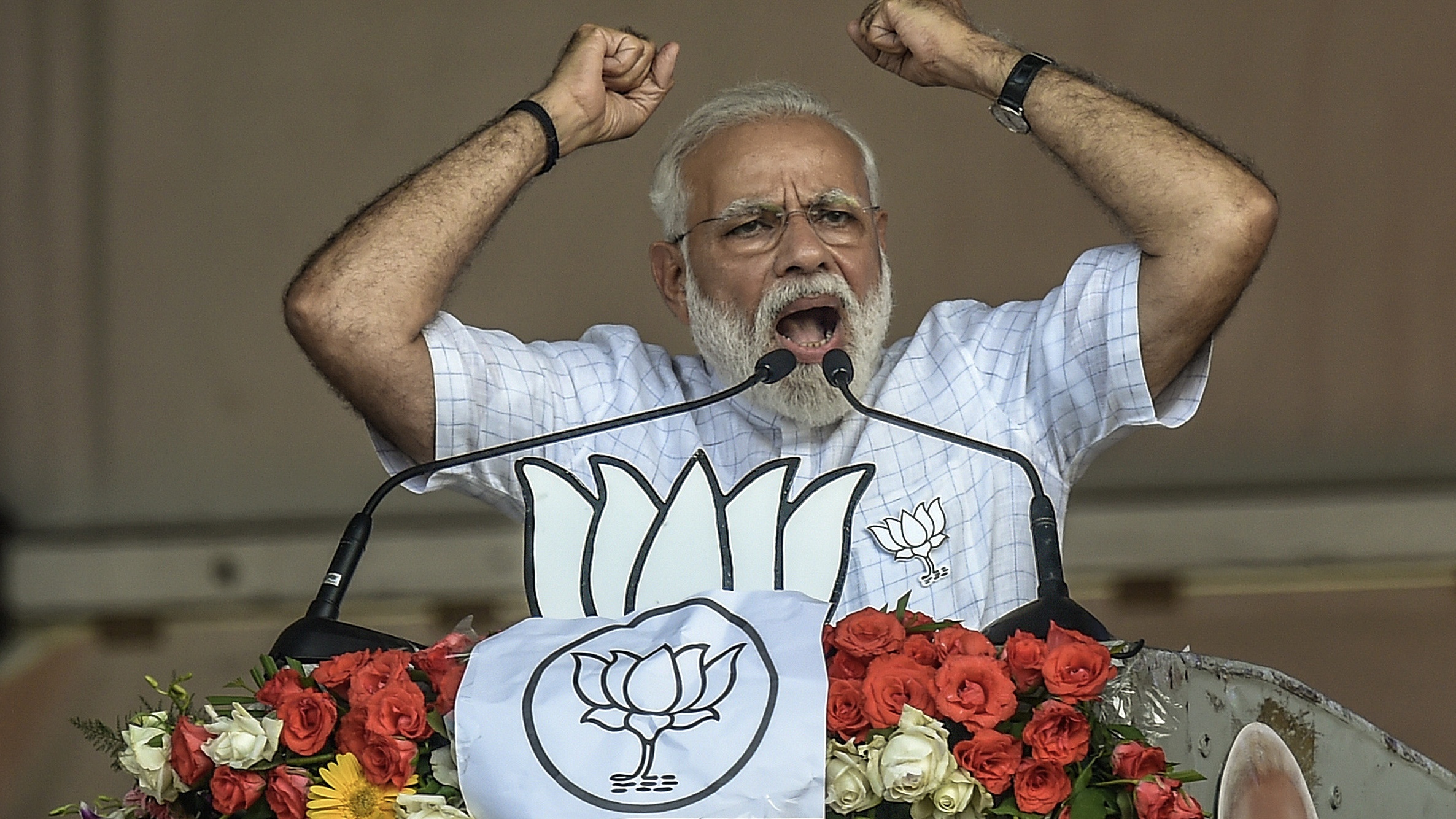
A free daily email with the biggest news stories of the day – and the best features from TheWeek.com
You are now subscribed
Your newsletter sign-up was successful
A rising tide of discrimination against India’s ethnic and religious minorities has triggered warnings that the government is “playing with the fire of sectarian hatred”.
India’s Supreme Court was forced to intervene last month after “several Hindu religious leaders” were accused of calling for a “genocide” of India’s Muslims, Al Jazeera reported. Hindu monks have also repeatedly called for “an ethnic cleansing of the kind that targeted Rohingya Muslims in Myanmar”, said The New York Times (NYT).
These groups of “extremists” were “once considered fringe”, said the paper, but are “increasingly taking their militant message into the mainstream, stirring up communal hate in a push to reshape India’s constitutionally protected secular republic into a Hindu state”. And according to The Economist, Narenda Modi’s “government is ignoring and sometimes even encouraging” the “concerted and wide-ranging offensive” against minorities.
The Week
Escape your echo chamber. Get the facts behind the news, plus analysis from multiple perspectives.

Sign up for The Week's Free Newsletters
From our morning news briefing to a weekly Good News Newsletter, get the best of The Week delivered directly to your inbox.
From our morning news briefing to a weekly Good News Newsletter, get the best of The Week delivered directly to your inbox.
Tidal wave of hate
Under Modi’s leadership, the governing Hindu-nationalist Bharatiya Janata Party (BJP) “has increasingly resorted to Muslim-baiting to consolidate Hindu votes that tended previously to divide along lines of caste or ideology”, said The Economist.
The government’s “support for sectarian urges goes beyond speech”, the paper continued. Members of “minorities of all kinds are woefully rare in central ministries, in security agencies and in BJP-led local governments”, and the state “has ceased reporting such statistics as the religious composition of police, or the number of hate crimes”.
NDTV reported in January that BJP politicians had been responsible for 297 of a total 348 incidents of hate speech by “high-ranking political functionaries” since 2014, when Modi’s party first came to power. The frequency of such outbursts of so-called “VIP hate” had jumped by 160% over the past three-and-a-half months, the analysis by the New Delhi-based news channel found.
The recent spike may be down to the approach of elections in five states this month, with BJP nationalists “turning up the heat”, The Economist said. Modi’s party is “anxious to retain its hold on Uttar Pradesh, India’s most populous state, in advance of the next general election in 2024”, and BJP campaign material has included “blunt sectarian content, such as images of Muslims as terrorists, or of opposition politicians dressed in ‘Muslim’ garb”.
A free daily email with the biggest news stories of the day – and the best features from TheWeek.com
Analysts and activists have warned that Hindu extremists are being “enabled, even normalised, by political leaders and law enforcement officials”, said the NYT. The ruling regime is accused of offering “tacit endorsements by not directly addressing such divisive issues”.
Modi “and his top leaders remained silent” after footage of a recent call to arms by monks in the holy city of Haridwar went viral, the paper reported. While the Supreme Court launched an investigation following calls for the Hindu religious leaders to be prosecuted, junior members of Modi’s party allegedly attended the meeting where the “genocide” call was made, “and the monks have often posted pictures” with senior politicians.
“You have persons giving hate speech, actually calling for genocide of an entire group, and we find reluctance of the authorities to book these people,” Rohinton Fali Nariman, a recently retired Supreme Court judge, said during a public lecture last month.
“Unfortunately, the other higher echelons of the ruling party are not only being silent on hate speech, but almost endorsing it.��
Call to action
Hindu nationalists that “incite violence openly boast that politicians and police will not touch them”, The Economist said. Modi’s BJP “has pushed government prosecutors to pursue cases against Muslims accused of sectarian troublemaking, but has rarely shown any zeal with Hindus”, according to the paper.
This alleged state “endorsement”, as former judge Nariman described it, is “stoking communal tensions in a country where small triggers have incited mass-death tragedies”, said the NYT.
The increasing hate speech “resonates with increasingly emboldened vigilante groups”, triggering attacks in which mobs have “beaten people accused of disrespecting cows”, “dragged couples out of trains, cafes and homes”, and “barged into religious gatherings where they suspect people are being converted”.
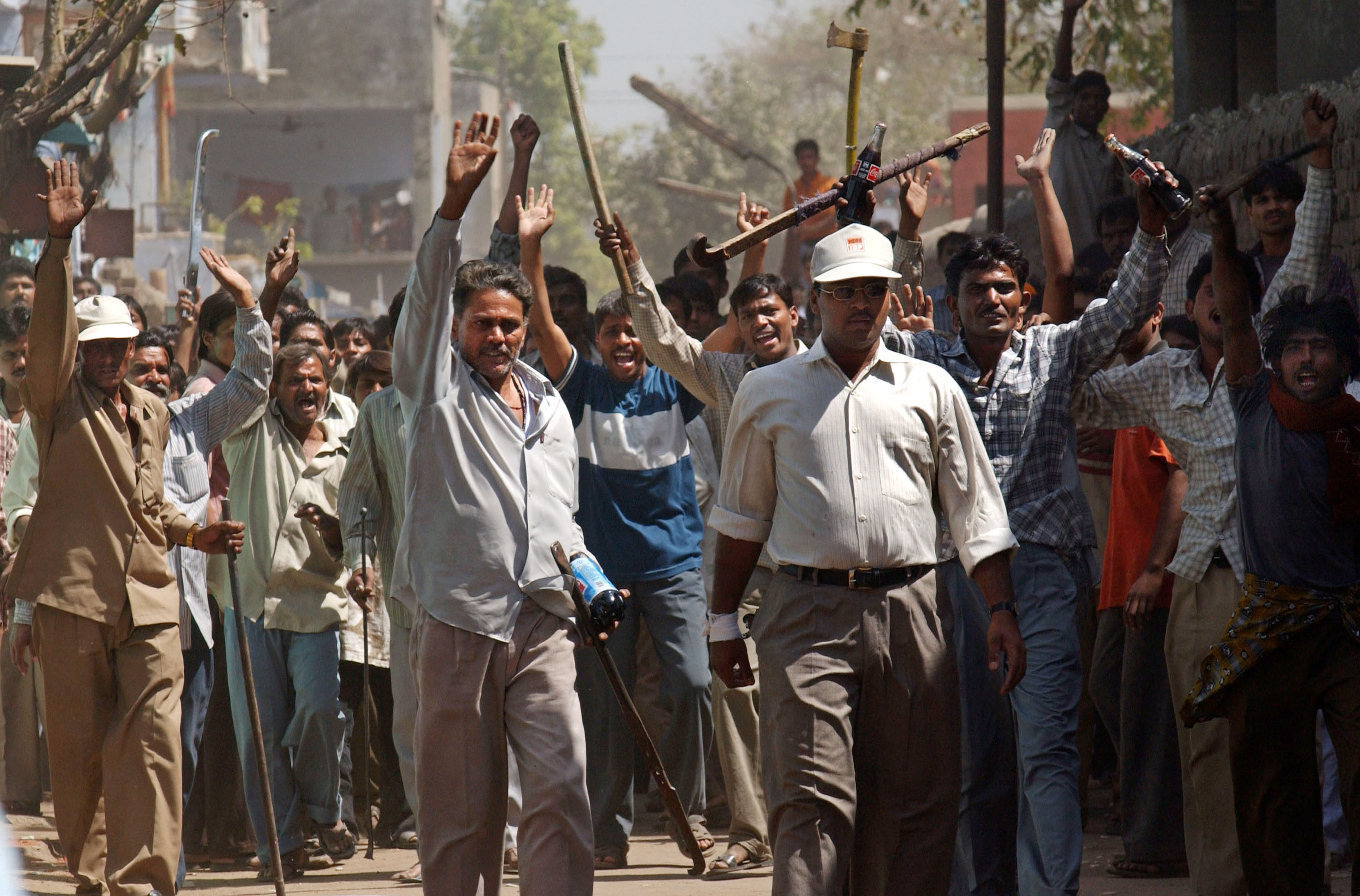
In “many instances” in which violence against Hindus and other minorities has occurred, “police appear to have ignored warnings of trouble” or “blamed and even arrested those being attacked”, said The Economist.
Such assaults include an attack on St Joseph’s School in Ganj Basoda, a provincial town in the state of Madhya Pradesh. In early December, a Muslim mob “surged” into the Christian educational facility, causing £19,000 worth of damage.
Vote winner
The attack on St Joseph’s “was not the first, but the third on a Christian-affiliated school in Madhya Pradesh since October”, The Economist reported.
And “more disturbing still”, given India’s “secular constitution”, is the fact that Modi’s “government is increasingly turning a blind eye towards and even actively encouraging majoritarian chauvinism”, the paper added.
According to economist and journalist Mihir Sharma, the BJP is “playing with the fire of sectarian hatred” in an effort to distract “from a struggling economy and the devastation caused by the Covid-19 pandemic”.
In an opinion piece for New Delhi-based news site The Print, Sharma wrote that Modi’s government is “not the first political party to wink at ethno-nationalist extremism among its followers”. But “such open promotion of genocide and ethnic cleansing should have set off alarms”.
“It is not only tens of millions of minorities – as well as India’s increasingly tenuous connection to liberal values – that are at risk,” Sharma warned. “The Indian state itself risks being undermined by its leaders’ tacit acceptance of religious vigilantism.”
Gregory Stanton, the founder of Genocide Watch, told a US congressional briefing last month that the “processes” that lead to genocide were well under way in India.
Speaking to the NYT, Stanton said that Myanmar served as a warning about how easily hate speech can spill over into violence. But in India, it would be mobs, not the military, doing the killing, he added.
“You have to stop it now,” Stanton said. “Once the mobs take over it could really turn deadly.”
In the short term, said The Economist, Modi’s “lurch towards majoritarian chauvinism” is likely to “win a few more votes for the BJP” in this month’s state elections.
But “the loser from this equation is not just the increasingly fretful fifth” of the population who are non-Hindu. “It is India itself.”
-
 6 of the world’s most accessible destinations
6 of the world’s most accessible destinationsThe Week Recommends Experience all of Berlin, Singapore and Sydney
-
 How the FCC’s ‘equal time’ rule works
How the FCC’s ‘equal time’ rule worksIn the Spotlight The law is at the heart of the Colbert-CBS conflict
-
 What is the endgame in the DHS shutdown?
What is the endgame in the DHS shutdown?Today’s Big Question Democrats want to rein in ICE’s immigration crackdown
-
 How corrupt is the UK?
How corrupt is the UK?The Explainer Decline in standards ‘risks becoming a defining feature of our political culture’ as Britain falls to lowest ever score on global index
-
 The high street: Britain’s next political battleground?
The high street: Britain’s next political battleground?In the Spotlight Mass closure of shops and influx of organised crime are fuelling voter anger, and offer an opening for Reform UK
-
 Biggest political break-ups and make-ups of 2025
Biggest political break-ups and make-ups of 2025The Explainer From Trump and Musk to the UK and the EU, Christmas wouldn’t be Christmas without a round-up of the year’s relationship drama
-
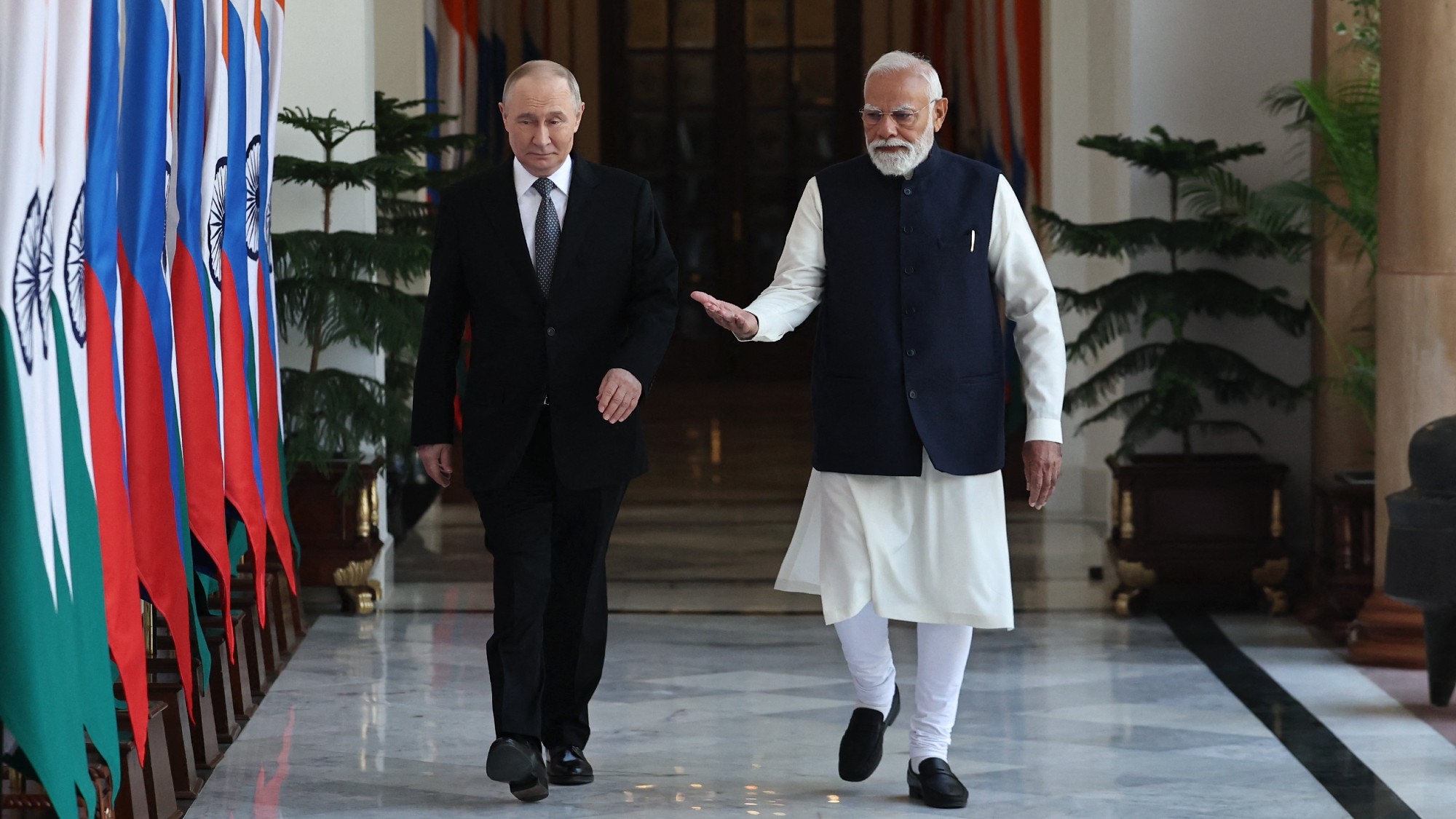 Is a Putin-Modi love-in a worry for the West?
Is a Putin-Modi love-in a worry for the West?Today’s Big Question The Indian leader is walking a ‘tightrope’ between Russia and the United States
-
 Is a Reform-Tory pact becoming more likely?
Is a Reform-Tory pact becoming more likely?Today’s Big Question Nigel Farage’s party is ahead in the polls but still falls well short of a Commons majority, while Conservatives are still losing MPs to Reform
-
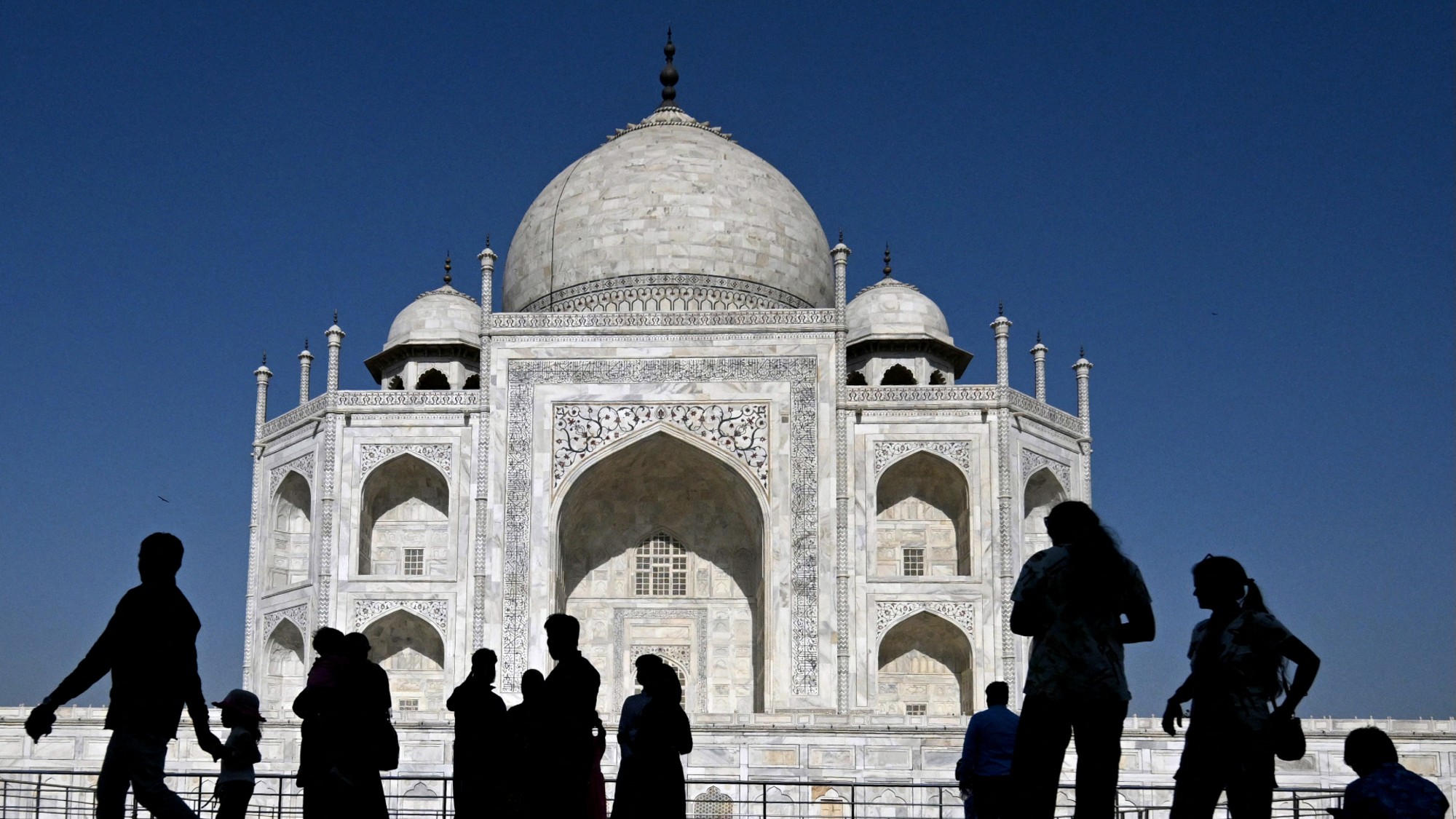 ‘These attacks rely on a political repurposing’
‘These attacks rely on a political repurposing’Instant Opinion Opinion, comment and editorials of the day
-
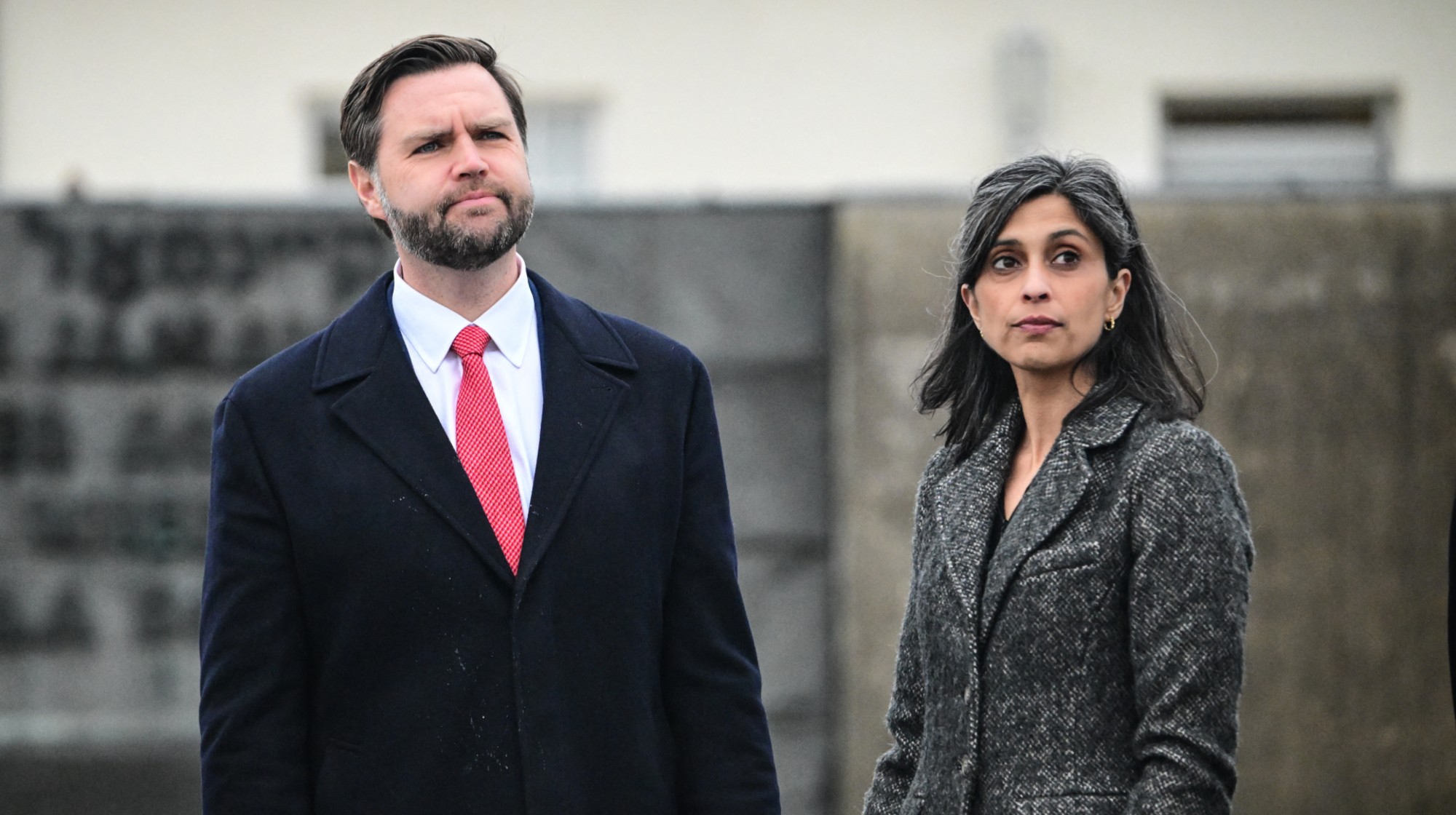 JD Vance wades into choppy religious waters about wife Usha
JD Vance wades into choppy religious waters about wife UshaTHE EXPLAINER By emphasizing his hope that the Second Lady convert to Christianity, the vice president is inviting controversy from across the religious spectrum
-
 Taking the low road: why the SNP is still standing strong
Taking the low road: why the SNP is still standing strongTalking Point Party is on track for a fifth consecutive victory in May’s Holyrood election, despite controversies and plummeting support